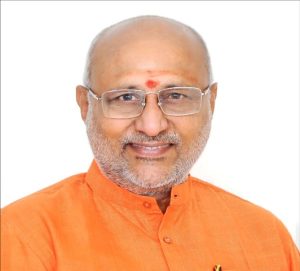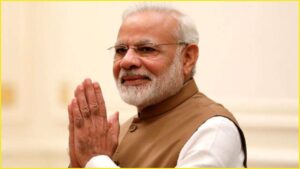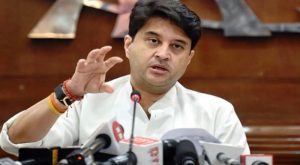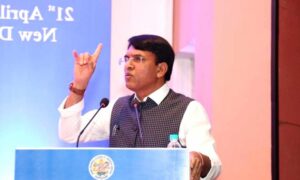by Saksham Pahuja, (courtesy Sanjay Tuteja)..
In a candid conversation with Mr. Kunal Kumar, the Mission Director of the Smart Cities Mission and Joint Secretory in Ministry of Housing and Urban Affairs’, Government of India, held on the sidelines of the Smart City Conclave in Indore, we delve into the remarkable journey of this initiative and its impact on urban development in India.
Can you give us an overview of the Smart Cities Mission and its objectives?
Certainly. The Smart Cities Mission, launched on June 25, 2015, is aimed at fundamentally transforming urban living in India. Its primary goals are to provide essential infrastructure, ensure a clean and sustainable environment, and enhance the overall quality of life for our citizens through the application of innovative smart solutions. In essence, it seeks to revolutionize the way we approach urban development.
What are the key milestones achieved by the Smart Cities Mission to date?
The mission has made significant strides. Over 6,000 projects, totaling more than Rs.1.1 lakh crore, have been successfully completed. These projects cover a broad spectrum of urban development areas, from infrastructure to public services.
One noteworthy achievement is the establishment of Integrated Command and Control Centers (ICCC) in all 100 Smart Cities. These ICCCs serve as the operational hub for city management, using technology to improve various aspects of urban life, such as crime tracking, safety, transport, waste management, and disaster response.
Could you highlight some of the sectors in which projects have been undertaken by the Smart Cities?
Certainly. The Smart Cities have embarked on projects across a diverse range of sectors. In the realm of smart mobility, 1,192 projects valued at Rs. 24,265 crore have been completed, with an additional 494 projects worth Rs. 16,905 crore in progress. We’ve also seen significant strides in smart energy, with 573 projects completed and 94 ongoing.
Water Supply, Sanitation, and Hygiene (WASH) have seen comprehensive improvements, with more than 1,162 projects completed (worth Rs.34,751 crore) and 333 ongoing (valued at Rs.18,716 crore). Vibrant public spaces have been created through more than 1,063 projects worth Rs.6,403 crore, and 260 projects worth Rs. 5,470 crore are still ongoing.
Moreover, the mission has encouraged Public Private Partnerships (PPP) to bolster economic infrastructure, with 180 PPP projects completed, amounting to Rs. 8,228 crore, and 27 ongoing projects. In the social infrastructure sector, which includes healthcare, education, and housing, 679 projects have been completed, and 153 are ongoing.
We understand that the Smart City Conclave in Indore featured the President of India awarded Smart City awards to winning cities. Could you tell us more about this event and its significance?
Absolutely, the Smart City Conclave in Indore was a momentous occasion. It brought together leaders, innovators, and stakeholders in urban development to celebrate the achievements of the Smart Cities Mission. The President of India graced the event and awarded Smart City awards to the cities that demonstrated excellence in implementing smart solutions and driving urban progress.
Were there any other noteworthy activities or exhibits at the Conclave?
Indeed, the Conclave also featured a captivating exhibition where Smart Cities showcased their innovative models and projects. It was a platform for these cities to demonstrate the tangible impact of their efforts, exchange ideas, and inspire others on the path to urban transformation.
In conclusion, the Smart Cities Mission is a testament to India’s dedication to revitalizing its urban landscape and improving the overall well-being of its citizens. As we move forward, the mission continues to pave the way for a more sustainable, connected, and prosperous future for India’s urban centers, as showcased at the prestigious Smart City Conclave in Indore.




